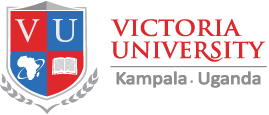Quick Facts
Credential
Diploma
Delivery Options:
Both On-Campus and Online - Some of your Classes will be in-person, on campus and some will be done online.
Duration: 2 YEARS
With a typical full-time course load, this programme will take 2 YEARS to complete.
Language of instruction
english
Admission Requirements
Criteria for Admission and Selection Procedure
Normal Entry Requirements for Degree Courses (in line with NCHE requirements)
Direct Entry
· UCE & UACE Certificate with 2 Principal Passes (Ugandans)
· KCSE holders must have a minimum grade of C+ and above. OR ACE, 'GCE or A-levels' applicants must have at least 2 principal passes or its equivalent. (Kenyans)
· TCE & TACE Certificate with at least 2 Principal Passes (Tanzanians)
· Qualifications that are recognized for University entry in their respective countries, these will always be vetted by the NCHE. (Other Nationals)
Diploma
Related Diploma from a recognized institution of Higher Learning
Mature Age-
· Candidate must be 25 years of age and above and must have sat entry exams from a recognized centre. NCHE recognizes the following institutions’ mature age examinations in Uganda:
Makerere University
Gulu University
Islamic University in Uganda-Mbale
Mbarara University of Science and Technology
The eligible candidate must have got two principal passes at ‘A’ level in relevant subjects and 5 passes at ‘O’ Level. They should have been obtained at the same sitting not consecutive sittings.
Academic Regulations and Regulations of Assessment
This Course conforms to the Victoria University Academic regulation of taught undergraduate and postgraduate provisions.
What you will Learn
Learning Outcomes
Upon completion of the programme, graduates will:
Demonstrate a Comprehensive Understanding of International Relations: Gain a broad and in-depth knowledge of the field, including major analytical and theoretical frameworks used in political science and related disciplines, as well as an understanding of the international institutions and forces that shape global interactions.
Possess Critical Thinking and Effective Communication Skills: Be equipped to think critically and articulate ideas through coherent written arguments, using evidence to critically analyze international policies and theories.
Value Active Citizenship and Justice: Embrace the principles of active citizenship and the pursuit of a just society, reflecting the program's commitment to fostering ethical and socially responsible leaders.
Victoria University, Kampala, through this program, aims to mold professionals who are not only academically and professionally qualified but also globally competent to address the challenges and opportunities of the international arena. Our graduates are envisioned to lead, innovate, and contribute meaningfully to the domains of international relations and diplomacy, propelling them towards achieving global peace, cooperation, and development.
Career Opportunities
Graduates of the Bachelor of Arts in International Relations and Diplomatic Studies, particularly from an institution like Victoria University, Kampala, are well-positioned for a diverse range of career paths. These opportunities span the public, private, and non-profit sectors, reflecting the degree's versatility and the global demand for professionals with expertise in international relations and diplomacy. Here are some of the likely career opportunities for graduates:
1. Diplomacy and Foreign Service
Diplomat/Foreign Service Officer: Representing and protecting a nation's interests abroad in terms of politics, trade, and consular services.
Embassy Staff: Various roles within embassies, including political analyst, economic advisor, or public affairs specialist.
2. International Organizations
International Civil Servant: Working for international organizations such as the United Nations, World Bank, International Monetary Fund, or regional bodies like the African Union, in various capacities.
Programme Officer: Managing and implementing international development projects and initiatives.
3. Non-Governmental Organizations (NGOs)
Humanitarian Aid Worker: Providing assistance in crisis situations and supporting development projects.
Policy Analyst: Researching and developing policies on global issues like human rights, environmental policy, and sustainable development.
4. Government and Public Sector
Policy Advisor: Advising on foreign policy and international relations issues within government departments.
Intelligence Analyst: Working for national security agencies, analyzing global events and their implications for national security.
5. Academia and Research
Researcher: Conducting in-depth studies on international relations, conflict resolution, and global politics.
University Lecturer: Teaching courses on international relations, global studies, and related fields.
6. Private Sector and Consulting
International Business Development Manager: Identifying and developing business opportunities in foreign markets.
Consultant: Providing expertise on international market entry, risk assessment, and cross-cultural communication strategies for businesses and international organizations.
7. Media and Communications
International Correspondent/Journalist: Reporting on global events and international affairs.
Public Relations Specialist: Managing communications and relations for organizations with a significant international presence.
8. Peace and Conflict Resolution
Mediator/Negotiator: Facilitating peace talks and conflict resolution efforts in international disputes.
Program Coordinator: Working for peace-building organizations to develop and implement initiatives aimed at conflict prevention and resolution.
9. Development Cooperation
Development Analyst: Assessing needs and planning development initiatives for international development agencies.
Project Manager: Overseeing development projects aimed at poverty reduction, education, health improvement, and sustainable development goals.
Graduates in this field are equipped with the analytical skills, cultural awareness, and understanding of global systems necessary to navigate and influence the complex landscape of international relations and diplomacy.
Tuition & Fees
The tuition and fee amounts are estimates based on current academic year's rates. For financial planning purposes, please use these totals as an approximate estimate of your costs. Actual fees may vary by term and enrolment activities.
Download
